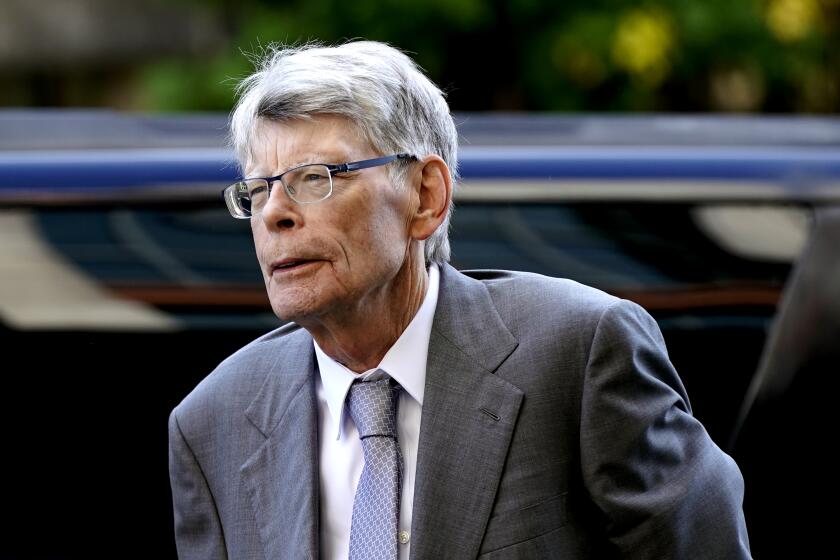John Grisham, George R.R. Martin and other authors sue OpenAI for copyright infringement

- Share via
NEW YORK — John Grisham, Jodi Picoult and George R.R. Martin are among 17 authors suing OpenAI for “systematic theft on a mass scale,” the latest in a wave of legal action by writers concerned that artificial intelligence programs are using their copyrighted works without permission.
In papers filed Tuesday in federal court in New York, the authors alleged “flagrant and harmful infringements of plaintiffs’ registered copyrights” and called the ChatGPT program a “massive commercial enterprise” that is reliant upon “systematic theft on a mass scale.”
The suit was organized by the Authors Guild and also includes David Baldacci, Sylvia Day, Jonathan Franzen and Elin Hilderbrand among others.
“It is imperative that we stop this theft in its tracks or we will destroy our incredible literary culture, which feeds many other creative industries in the U.S.,” Authors Guild Chief Executive Mary Rasenberger said in a statement. “Great books are generally written by those who spend their careers and, indeed, their lives, learning and perfecting their crafts. To preserve our literature, authors must have the ability to control if and how their works are used by generative AI.”
The lawsuit cites specific ChatGPT searches for each author, such as one for Martin in which the program allegedly generated “an infringing, unauthorized, and detailed outline for a prequel” to “A Game of Thrones” that was titled “A Dawn of Direwolves” and used “the same characters from Martin’s existing books in the series “A Song of Ice and Fire.”
Is it foolish to believe that authors should resist having their works used to train AI without getting paid for it? Stephen King thinks so, but he misunderstands some important history.
The press office for OpenAI did not immediately respond to requests for comment.
Earlier this month, a handful of authors including Michael Chabon and David Henry Hwang sued OpenAI in San Francisco for “clear infringement of intellectual property.”
In August, OpenAI asked a federal judge in California to dismiss two similar lawsuits, one involving comedian Sarah Silverman and another from author Paul Tremblay. In a court filing, OpenAI said the claims “misconceive the scope of copyright, failing to take into account the limitations and exceptions (including fair use) that properly leave room for innovations like the large language models now at the forefront of artificial intelligence.”
Author objections to AI have helped lead Amazon.com, the country’s largest book retailer, to change its policies on ebooks. The online giant is now asking writers who want to publish through its Kindle Direct Program to notify Amazon in advance if they are including AI-generated material. Amazon is also limiting authors to three new self-published books on Kindle Direct per day, an effort to restrict the proliferation of AI texts.
More to Read
Sign up for Essential California
The most important California stories and recommendations in your inbox every morning.
You may occasionally receive promotional content from the Los Angeles Times.











